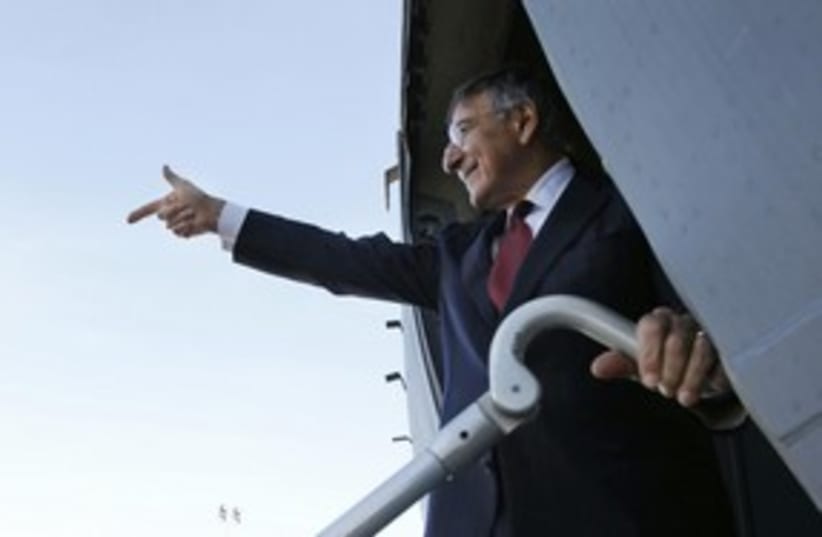'Iran could assemble nuclear bomb in under a year'
In CBS interview, US Secretary of Defense Panetta says that US, Israel share common concern and if Tehran proceeds with developing nuclear weapon "we will take whatever steps necessary to stop it."
By HERB KEINON JPOST.COM STAFF
US Secretary of Defence Panetta departing Tripoli_311
Iran will be able to assemble a nuclear bomb within a year, if not sooner, US Secretary of Defense Leon Panetta said during an interview with CBS News late Monday night.When asked by CBS News anchor Scott Pelley if Iran could get a nuclear weapon by 2012, Panetta answered: “It would probably be about a year before they can do it. Perhaps a little less.”RELATED: Panetta: Strike on Iran must be the last resort Israel seeks new friends to counter Islamism Panetta: Strike on Iran could hurt world economy
if(catID != 151){
var cont = `Take Israel home with the new
Jerusalem Post Store Shop now >>

